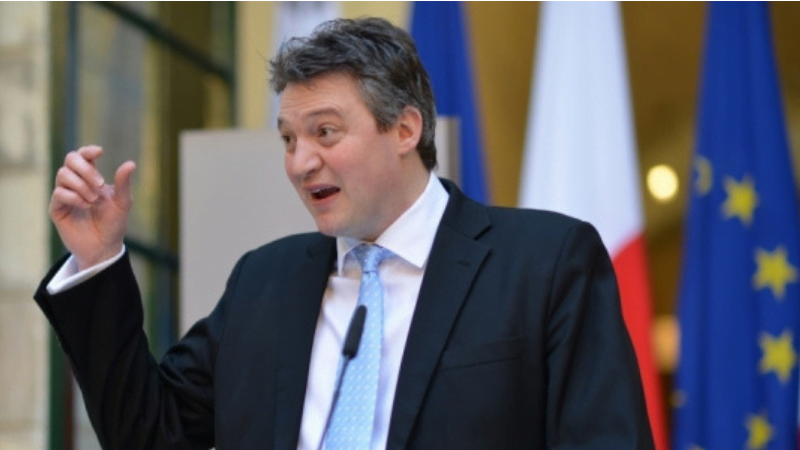The Electrogas deal has been described as a “highly irregular procedure” by the Council of Europe (CoE) assessment authored by Special Rapporteur Pieter Omtzigt.
His report was adopted last week via a majority approval of the Legal Affairs and Human Rights Committee of the CoE, despite around 50 objections from the Maltese government.
Entitled ‘Daphne Caruana Galizia’s assassination and the rule of law, in Malta and beyond: ensuring that the whole truth emerges’ it analysed the rule of law and the circumstances around her assassination.
Caruana Galizia was working on a leak of Electrogas emails at the time of her assassination. The scandal captured the attention of the Special Rapporteur who said there were similarities between the energy deal and the one on Malta’s public hospitals involving Vitals Global Healthcare (VGH). The Electrogas deal, like the VGH deal, was negotiated and signed by Minister Konrad Mizzi.
Read: Konrad Mizzi signature on hidden LNG agreement raises red flag
Omtzigt notes how this “major public contract” was awarded to a consortium including the Azerbaijani State energy company SOCAR which made large profits from selling Malta liquid natural gas (LNG) at a price “well above the market rate”.
Enemalta has been paying up to twice the market rate for its natural gas and SOCAR made an estimated $40 million in profit, the report notes.
Omtzigt referred to media revelations that another member of the consortium – Yorgen Fenech – owned the Dubai company 17 Black set to make payments of €150,000 a month to the once-secret Panama companies owned by Mizzi and the Prime Minister’s Chief of Staff Keith Schembri.
Despite being officially informed of the case by the FIAU, “the police have taken no action against Dr Mizzi or Mr Schembri”, the report states.
It describes how the Labour government started looking for a new supplier of natural gas just one month after winning the 2013 election. In October of that year, the Electrogas Malta Consortium was selected.
Suspected irregularities over how the consortium was selected led to an investigation by the Auditor General presented in November 2018. Its findings showed that “the selection committee had been inconsistent in assessing bids” and that “changes to parameters were made during the selection process”.
The Auditor General’s report also noted that due diligence checks were insufficient and expressed “reservations about the design of the project overall”. It also found that Mizzi had breached contracts by allowing members of the consortium to withdraw and transfer shares.
Omtzigt notes that while this could all be dismissed as “incompetence”, Mizzi has claimed to be an expert in the energy sector, giving the deal a “more sinister aspect”.
The report finds that “these facts have given rise to widespread suspicions of corruption and money laundering” and that Mizzi was “instrumental” in arranging for certain parties to profit from various aspects of the deal.
“These parties were then to make concealed payments (kickbacks) to the benefit of Mizzi and Schembri, through a network of secret offshore companies established by (Brian) Tonna,” the report states.
Tonna and his firm Nexia BT are referred to several times throughout the report, described as having played “key roles” in the Panama Papers, Electrogas, Egrant, Adrian Hillman and the “golden passport” scandals.
It adds that Tonna also received “lucrative government contracts” and that the Accountancy Board has declined to take action against him.
The evidence of wrongdoing is described as “compelling”. Yet it concludes that, to date, nothing has been done to investigate, let alone bring anyone involved to justice.












